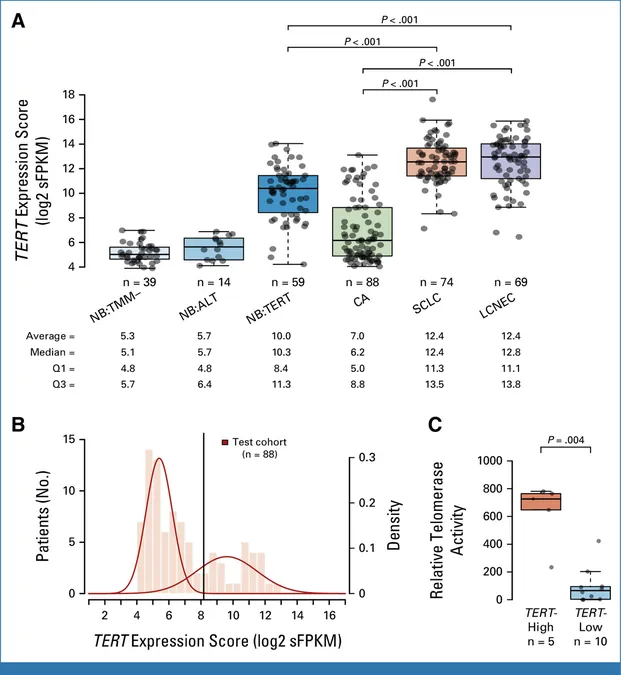
Groundbreaking Research Reveals Gene Activation as Key Player in Aggressive Pulmonary Carcinoid Tumors
2024-10-02
Author: Nur
Introduction
In a significant advancement for oncology, a recent study has unveiled a critical link between gene activation and the severity of pulmonary carcinoids, a rare type of lung tumor known for its unpredictable behavior. While some patients benefit from surgical removal leading to full recovery, others face aggressive forms of the disease that lead to metastasis and lower survival rates. The underlying biological mechanisms that contribute to these diverse clinical outcomes have long eluded researchers.
Collaborative Study and Findings
Now, a collaborative study conducted by scientists from the Experimental Paediatric Oncology Department at University Hospital Cologne and the Department of Translational Genomics at the University of Cologne has shed light on this enigma. The findings, published in the prestigious Journal of Clinical Oncology, indicate that the expression of the TERT (telomerase reverse transcriptase) gene plays a pivotal role in the progression of pulmonary carcinoids.
Significance of TERT
Dr. Lisa Werr, the lead author of the study, emphasized the significance of their findings: "This research provides the first molecular explanation for the aggressive clinical behavior observed in specific pulmonary carcinoids." The TERT gene is crucial for producing telomerase, an enzyme that stabilizes the ends of chromosomes (known as telomeres). While this enzyme remains inactive in most healthy cells, its activation in stem and cancer cells allows these cells to divide indefinitely, leading to uncontrolled growth—a hallmark of malignancy.
Analysis and Implications
The researchers' analysis revealed that only those pulmonary carcinoids exhibiting aggressive clinical features had activated the TERT gene, while benign carcinoids showed no such activation. This discovery mirrors previous observations in neuroblastoma, a common pediatric cancer, where adverse clinical outcomes were similarly tied to telomere stabilization mechanisms.
Future Directions
“This groundbreaking study not only provides insight into the biological underpinnings of pulmonary carcinoids but also holds promise for clinical applications,” noted Professor Dr. Matthias Fischer, head of the Experimental Paediatric Oncology Department at University Hospital Cologne and co-author of the study. He went on to explain that the findings could pave the way for more accurate predictions of disease progression, allowing for tailored treatment approaches based on individual patient needs.
Conclusion
As research on the relationship between TERT activation and pulmonary carcinoids continues to evolve, it offers new hope for improving survival rates and treatment strategies for patients dealing with this rare and challenging form of cancer. Stay tuned as we follow the developments of this unfolding story in the fight against cancer!




 Brasil (PT)
Brasil (PT)
 Canada (EN)
Canada (EN)
 Chile (ES)
Chile (ES)
 España (ES)
España (ES)
 France (FR)
France (FR)
 Hong Kong (EN)
Hong Kong (EN)
 Italia (IT)
Italia (IT)
 日本 (JA)
日本 (JA)
 Magyarország (HU)
Magyarország (HU)
 Norge (NO)
Norge (NO)
 Polska (PL)
Polska (PL)
 Schweiz (DE)
Schweiz (DE)
 Singapore (EN)
Singapore (EN)
 Sverige (SV)
Sverige (SV)
 Suomi (FI)
Suomi (FI)
 Türkiye (TR)
Türkiye (TR)